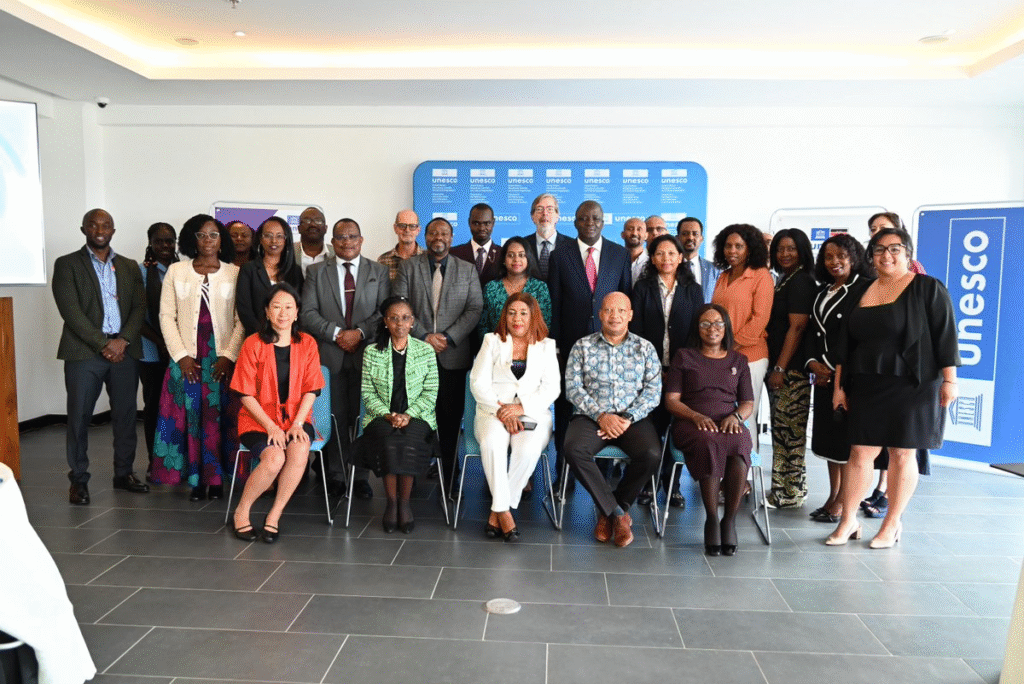Government considers a policy reversal on vaccination of livestock to allow farmers purchase vaccines.

The Minister of Agriculture, Frank Tumwebaze, considers a policy reversal on livestock vaccination due to budget limitations, stating that the current policy covering 1.1% of susceptible animals is insufficient. Tumwebaze notes the financial challenges and proposes cost-sharing options. The Cabinet will discuss this on February 5, 2024.
The Minister of Agriculture, Animal Industry and Fisheries (MAAIF), Hon. Frank Tumwebaze has said that government is considering a policy reversal on vaccination of livestock, to allow farmers purchase vaccines.
The Minister made this revelation while presenting a statement on the outbreak of Foot and Mouth Disease (FMD) during the plenary sitting on Thursday, 01 February 2024.
Tumwebaze said that whereas the current policy requires government to avail vaccines to farmers as a public good, the budget for procuring vaccines has been insufficient covering only 1.1 per cent of the susceptible domestic animal population, contrary to the recommended 80 per cent.
“Our total susceptible animal herd that requires FMD vaccination as per current estimates is 44 million. This therefore, requires an annual vaccine stock of 88 million doses for the bi-annual vaccination requirement at a cost of USD$2 per dose. The financial implication for this translates into USD$176m,” said Tumwebaze.
He added that government has been studying the financial implication and notes the financial stress it would impose on the national budget if the requirement for bi-annual mass vaccination is to be achieved.
“Accordingly, a Cabinet Paper is scheduled for discussion on Monday, 05 February 2024 to consider a number of policy options including cost sharing since the cost per dose is affordable by most livestock farmers,” he said.
In the interim, Tumwebaze said that last year, MAAIF repurposed some of its development budget and managed to avail 2.6 million doses to the 94 districts through the district veterinary officers.
“Under the same arrangement, we have ordered for 2.3 million doses expected in a few months to come,” he said adding that, “another challenge associated with procuring of FMD vaccines is that they cannot be bought off-shelf since they are biologicals with a short shelf life. You order and they manufacture for you. This explains the delay in their supply chain”.
Tumwebaze added that MAAIF will present a supplementary request to procure 10 million doses to cover all the affected and high risk districts as well as equip and support DVOs with disease surveillance tools and resources.
He also said that that the National Agricultural Research Organisation (NARO) has started on the process of formulating and developing a FMD vaccine and are due for evaluation and scrutiny by the National Drug Authority.
“When the evaluation of the candidate vaccines comes out successful, NARO will be authorised to carry out trials for determination of efficacy and safety. If this level is also successful, government will further support NARO to produce for mass roll out as is happening with anti-tick vaccines,” said Tumwebaze.
The minister said it is planned that quarantine restrictions stay in place till the country receives FMD vaccines, distribution and vaccinations are done together with laboratory testing.
“This will ensure that the animals are protected; FMD will be controlled and prospects of animals, and animal products trade will be realised. However, with continued surveillance, the quarantine can be lifted earlier depending on how quickly the disease is contained in an area,” he said.
Members of Parliament welcomed both the proposal of policy reversal and request for supplementary to procure more vaccines.
Hon. Wilson Kajwengye (NRM, Nyabushozi County) said that farmers can afford the vaccines, adding that government should focus on regulating importation of the vaccines.
“Let the vaccines be sufficiently available and government regulates safe keeping and vaccination exercise,” he said.
Hon. Jovanice Twinobusingye (NRM, Kiruhura District) called on her counterparts to approve the supplementary, once it is presented saying that there is an urgent need for mass vaccination.
“I am happy that the minister asked for supplementary budget and I recommend that the House gives that immediately,” she said.
Hon. Abed Bwanika (NUP, Kimaanya-Kabonera) also expressed his support for a supplementary saying that it is important for government to avail vaccines.
Maj Gen. Sam Kavuma (UPDF) however, was concerned about the long processes in approval of the supplementary budget, as well as policy reversal.
“As we go through that process, people are in quarantine, not selling milk and cows, what do we do? By the time we conclude this long process, will our animals still be on quarantine,” he asked.
Deputy Speaker, Thomas Tayebwa gave the minister up to Thursday, 08 February 2024 to update Parliament on Cabinet’s position on policy reversal and that of the Ministry of Finance, Planning and Economic Development on supplementary request.
FMD is a highly contagious disease that affects all cloven-hoofed animals including cattle, goats, sheep, pigs and wild animals such as buffaloes, deers and antelopes. Currently, 36 districts across the country are affected by FMD and under quarantine.







